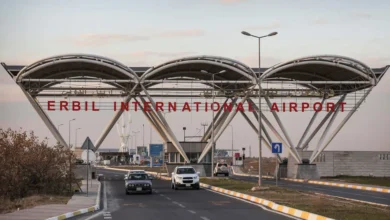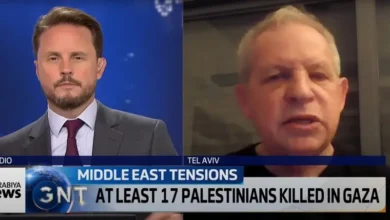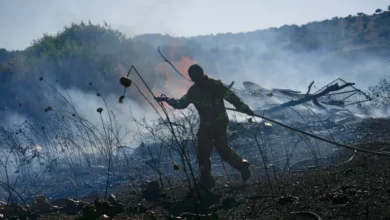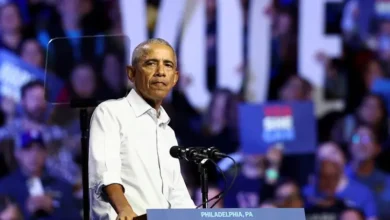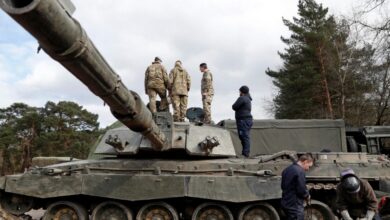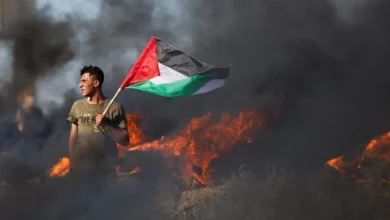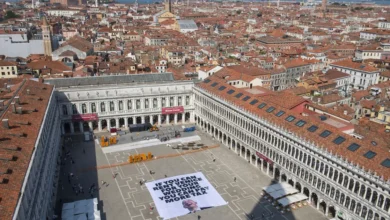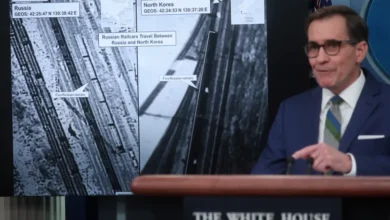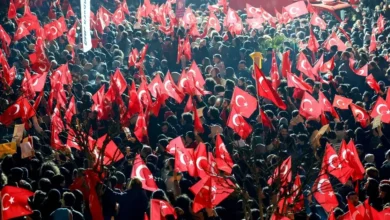US officials have seen Israeli military posture changes on Lebanon border
The US has observed changes in Israel’s military posture along the border with Lebanon, officials said on Saturday, hours after Hezbollah announced that its leader, Hassan Nasrallah, was killed in an Israeli attack.
A senior Iranian commander from the Quds Force was also killed in Friday’s attack, which caught US officials by surprise. The Israeli military posture observed on Saturday differed from that of the previous day, leading officials to reconsider whether Israel might be preparing for an invasion.
“We don’t know exactly what they’re planning. It’s their operation,” said one US official, who like others spoke on condition of anonymity to discuss the ongoing developments. “This could change again by tomorrow, but right now, it’s different than it was yesterday.”
On Friday, the Pentagon had stated that there was no indication of an imminent Israeli invasion of Lebanon. However, ABC News on Saturday reported that a senior US official suggested Israel was preparing for a limited ground incursion. Officials speaking to Al Arabiya English could not confirm this, while also highlighting that the US had not been fully briefed on Israeli military plans in recent months.
Pentagon chief Lloyd Austin and other Biden administration officials have expressed concerns, warning that any invasion or incursion, no matter how limited, would be a mistake. The US is also concerned that further escalation in Gaza could put American troops and citizens in the region at risk.
In response, President Biden directed the Pentagon to adjust US military posture in the region to address potential threats. The US Embassy in Beirut ordered the departure of some non-essential employees and warned that further restrictions on diplomats could be implemented depending on developments. US troops have also been placed on high alert across the region, especially in Iraq and Syria, where they have faced attacks from Iran-backed militias in recent months, resulting in American casualties.
The US defense secretary raised concerns over the safety of American troops during calls with the Israeli defense minister this week, as tensions and threats from Israel continued to rise. Israeli officials have been pressing Hezbollah to withdraw its fighters and weapons from the border region.
In his last public address, following Israel’s killing of nearly a dozen senior commanders from Hezbollah’s Radwan Forces Unit, Nasrallah invited an Israeli invasion casting it as a “historic opportunity.” A week later, Israeli forces launched the massive airstrikes on several residential buildings in the southern suburbs of Beirut. Reports suggest that Nasrallah was holding a meeting under these buildings at the time of the attack, though it remains unclear which other senior Hezbollah officials or Iranian generals were present.
Nasrallah had returned to Beirut late last week after he reportedly left for Tehran the day after a two-pronged Israeli attack that detonated thousands of pagers and communication devices used by Hezbollah across Lebanon, Syria, and Iraq.
The Israeli strikes and subsequent assassinations of high-level Hezbollah commanders did not deter Nasrallah, who vowed to continue attacking Israel “in support of Palestine.” He emphasized that the attacks would persist until a ceasefire in Gaza was achieved.
Shortly after Nasrallah’s remarks, US officials began seeking a way to stop the Lebanon-Israel front without necessarily tying it to a Gaza ceasefire. On Wednesday night, US officials touted a joint ceasefire proposal with the French as a “breakthrough.” Officials said they had support from the Lebanese and Israeli governments for a 21-day ceasefire to allow for diplomatic negotiations to take place. They expected both governments to publicly endorse the deal before Prime Minister Benjamin Netanyahu and several top officials in his government quickly shot it down and vowed to continue attacking Hezbollah targets in Lebanon.
Meanwhile, close to one million Lebanese residents have been displaced, hundreds killed and more wounded.
Secretary Austin held two calls with his Israeli counterpart on Friday to discuss the ongoing attacks, which US officials insist they were not informed about in advance. President Biden also stated that he was unaware of the plot to kill Nasrallah and emphasized that the US was not involved in the operation.
Nevertheless, the US government and several top lawmakers welcomed news of Nasrallah’s death.
Republican Congressman Darin LaHood said that the world was a “much better place” without Nasrallah.
Washington designated Hezbollah a terrorist organization, holding its predecessor, the Islamic Jihad Organization, responsible for the US Embassy and Marine Barracks bombings in Beirut in the 80s. The group also kidnapped and killed other Americans, including William Buckley, the CIA’s Station chief in Beirut, in 1985.
LaHood also emphasized the importance of continued US support for the Lebanese government and institutions. “Like many Lebanese Americans, both in my district and across the country, I share concern for the people of Lebanon and pray for their continued safety,” he said in a statement.
“The United States must continue to support the Lebanese Armed Forces (LAF) to maintain stability in the country and help expedite the election of an independent president who will serve the needs of the Lebanese people,” LaHood added. Lebanon has been without a president or fully functioning government since Michel Aoun’s mandate ended two years ago.
The top Democrat on the House Foreign Affairs Committee also praised the killing of Nasrallah. “But it is imperative we concentrate on efforts to deescalate the increasingly volatile situation in the Middle East,” Ranking Member Gregory Meeks said. “The lives of millions of innocent civilians in Israel, Gaza, Lebanon and elsewhere hang in the balance,” he added, urging more work towards a ceasefire in Gaza.
